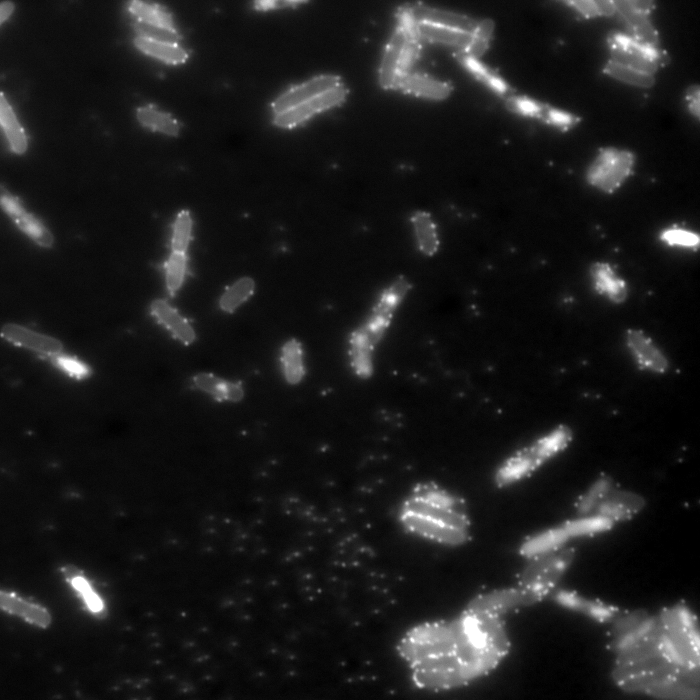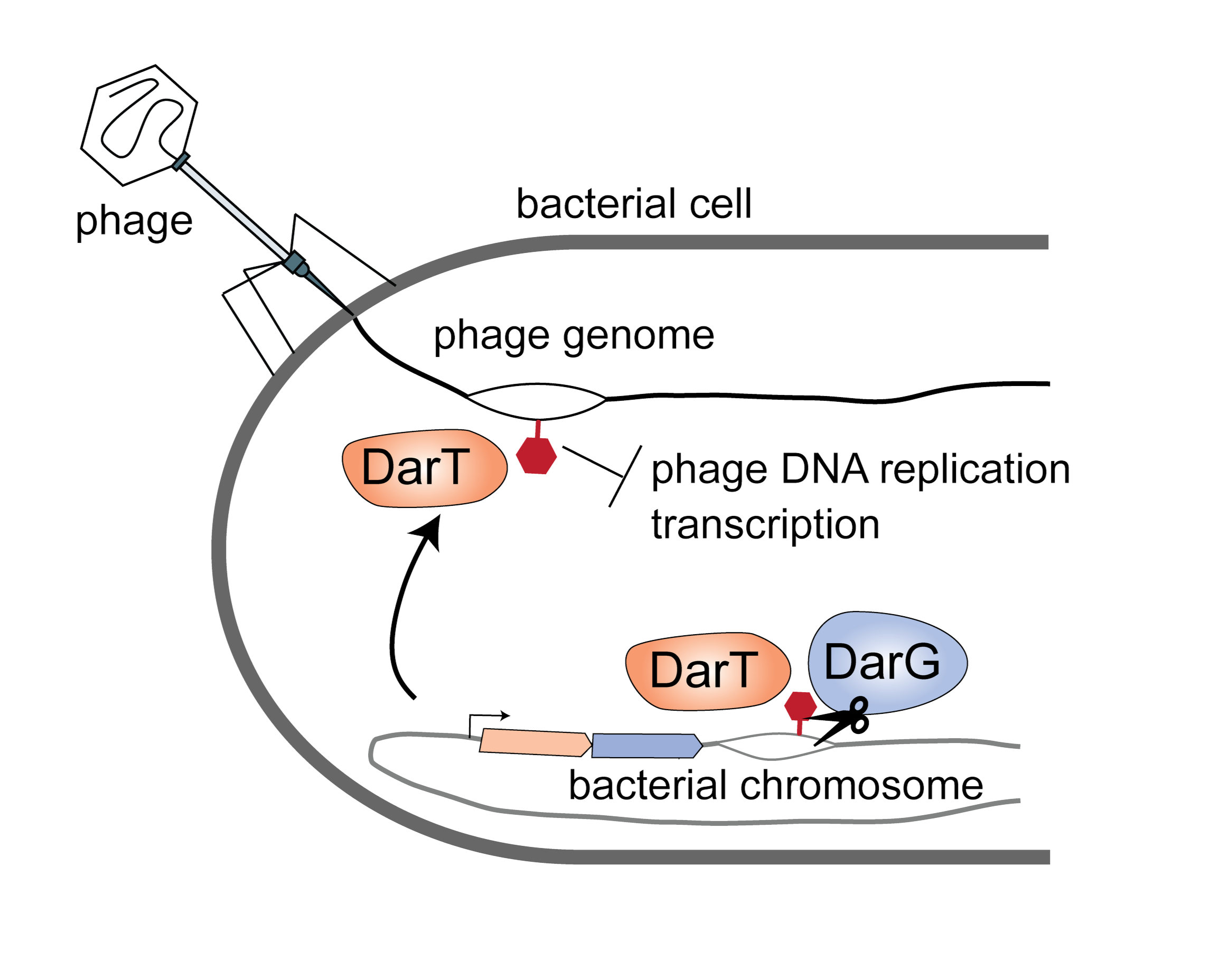
Research Themes
We study the molecular arms race between bacteria and phage.
Bacteria and their viruses, phage – the most prolific biological entities on earth – have been co-evolving for millions of years. The bacterial-phage molecular arms race has driven incredible biological diversity and innovation, of which we have just scratched the surface.
Our group works to characterize the bacterial immune system at a molecular and genomic level. Understanding the bacterial immune system will: 1) help us better understand immunity more broadly, as many defense arose in bacteria; 2) decipher the rules governing phage host range, moving us closer to using phage to treat bacterial infections; 3) uncovers novel biology with the potential for powerful biological tools.
-

DNA ADP-ribosylating phage defense systems
We study the role that a group of bacterial genetic elements called toxin-antitoxin systems play in phage defense. These small genetic elements consist of a toxin and a cognate antitoxin that keeps the system inactive in the absence of infection. Upon infection, the toxin acts to disrupt phage replication, thereby protecting kin cells from further infection. We discovered that one such toxin-antitoxin system, DarTG, carries a DNA ADP-ribosyltransferase (ART) toxin. Upon phage infection, the DarT toxin ADP-ribosylates phage DNA, which blocks DNA replication and transcription, thereby blocking phage replication. The different DarT-containing systems have entirely unrelated antitoxins from different protein families, yet all reverse the DNA ADP-ribosylation of their cognate toxins. We are investigating how different DNA ART systems function at the molecular level during phage infection, as well as identifying different mechanisms that phages have evolved to overcome these defenses. Investigating DNA ADP-ribosylation in the context of bacterial-phage interactions may also provide insight into the function of their homologs – many of unknown function – across the tree of life.
-

Phage defense in opportunistic pathogens
Due to the growing rise of antibiotic resistance, there is increased interest in the use of phage to treat bacterial infections. One hurdle facing phage therapy is the existing bacterial immune system. Phage defenses and phage-bacterial interactions more generally are not well understood in the pathogens that are the primary targets of phage therapy. We are performing screens to discover new phage defense pathways in opportunistic pathogens such as Pseudomonas aeruginosa and Acinetobacter baumannii. We also study how some phage have evolved to overcome bacterial defenses. Investigating phage-bacterial interactions outside of the model E. coli system is critical for several reasons: 1) it enables the discovery of unexplored pathways that may not be present in E. coli, 2) sheds light on how the unique biology of these pathogens influences the outcome of phage infections, and 3) brings us closer to understanding the phages of pathogens for which phage therapy is urgently sought. Investigating phage defense in the natural context of these organisms is critical for our ability to understand how the bacterial immune system functions.